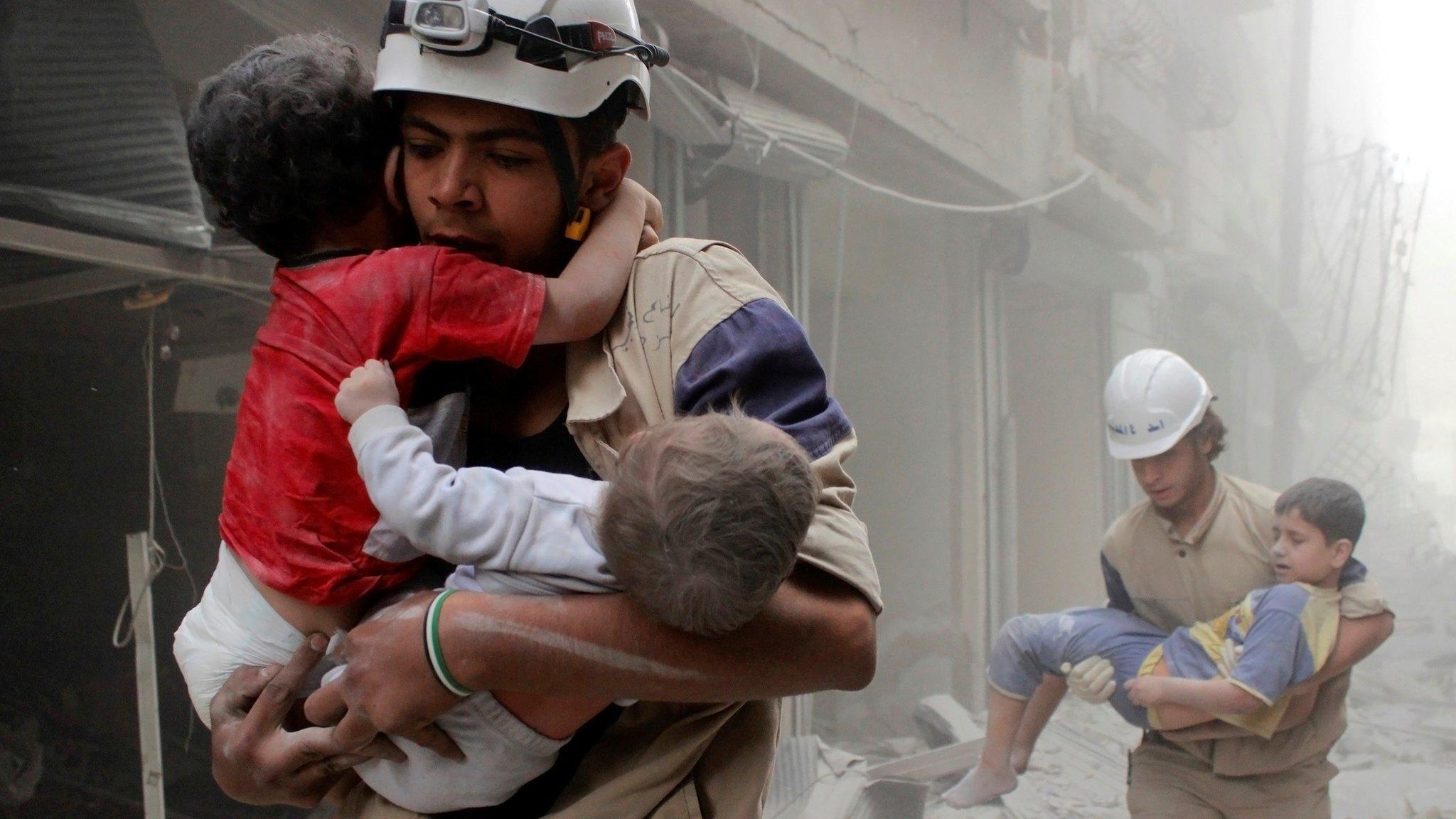Aleppo: George Osborne attacks 'vacuum' of Western leadership
- Published
George Osborne: We share responsibility for what is happening in Syria
George Osborne has told MPs that they share some responsibility for the terrible events happening in Syria.
The ex-chancellor said the unfolding tragedy in Aleppo had not "come out of a vacuum" but was due to "a vacuum of Western and British leadership".
Parliament had helped enable a "terrorist state" to emerge by voting against military intervention against the Assad regime in 2013, he said.
Foreign Secretary Boris Johnson said Assad had been left "to do his worst".
Speaking in an emergency debate about the conflict in Aleppo, Mr Johnson said it would not be safe for the UK to try and drop aid into the city because air space was controlled by the Syrian government, its ally Russia and other combatants.
But he said the government was keeping up the diplomatic pressure on President Assad and Russia by pushing for tougher economic sanctions and "gathering the information necessary" for the prosecution of war crimes by combatants in Syria.
The UN has warned that Syrian pro-government forces have been entering homes in eastern Aleppo and killing those inside, including women and children, as they seize control of that part of the city after months of bitter fighting.
Labour leader Jeremy Corbyn has written to Theresa May calling for a concerted effort to achieve a UN-led ceasefire and UN-brokered humanitarian corridors in Syria.
Mr Osborne - in one of his first Commons interventions since losing office - said Parliament must reflect on its own actions with regard to the five-year civil war in Syria.
'Worst decision'
In August 2013, Parliament rejected the government's case for possible intervention in response to the alleged use of chemical weapons by Syrian regime forces.
MPs voted 285-272 against the UK joining President Barack Obama's plan for US air strikes - which never came to pass because of political opposition in the US.
Mr Osborne recalled speaking from the backbenches ahead of the 2003 Iraq War and said he feared now that "it is impossible to intervene anywhere".
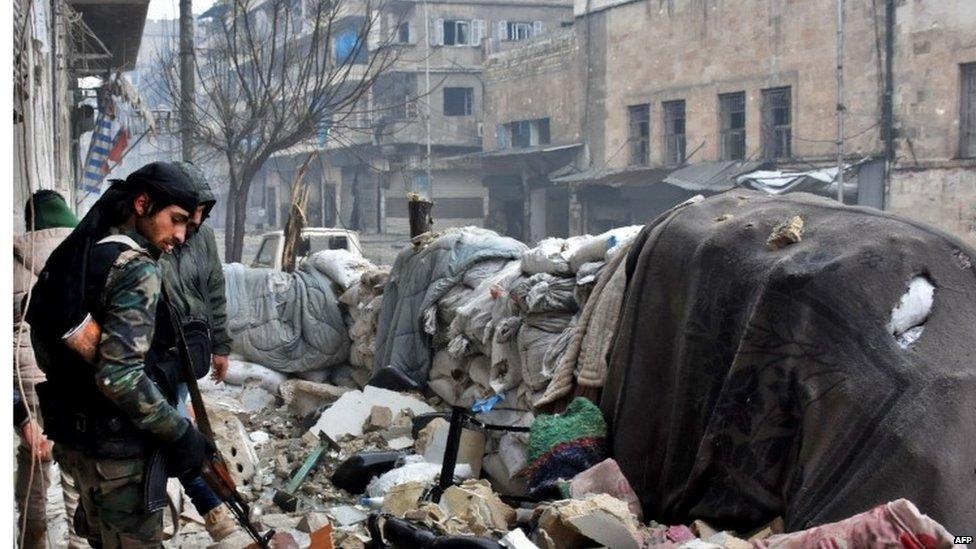
The United Nations says there have been atrocities in Aleppo
"The Syrian civil war has been waging since 2011 and therefore it is something that we could have foreseen and done something about," he said.
"I think we are deceiving ourselves in this Parliament if we believe that we have no responsibility for what has happened in Syria.
"The tragedy in Aleppo did not come out of a vacuum, it was created by a vacuum, a vacuum of Western leadership, of American leadership, British leadership."
But he said he had "some hope out of this terrible tragedy in Syria" that "we are beginning" to learn the "price of not intervening".
The price was that tens of thousands of people had been killed, millions of people had been forced from their homes and "we have allowed a terrorist state to emerge".
'Decisive player'
He added that key allies such as Lebanon and Jordan had been destabilised while the refugee crisis had allowed fascism to rise in Eastern Europe and created extremist parties in Western Europe and "for the first time since Henry Kissinger kicked them out of the Middle East in the 1970s, Russia is back as the decisive player in that region".
He added: "Let's be clear now, if you don't shape the world, you will be shaped by it."
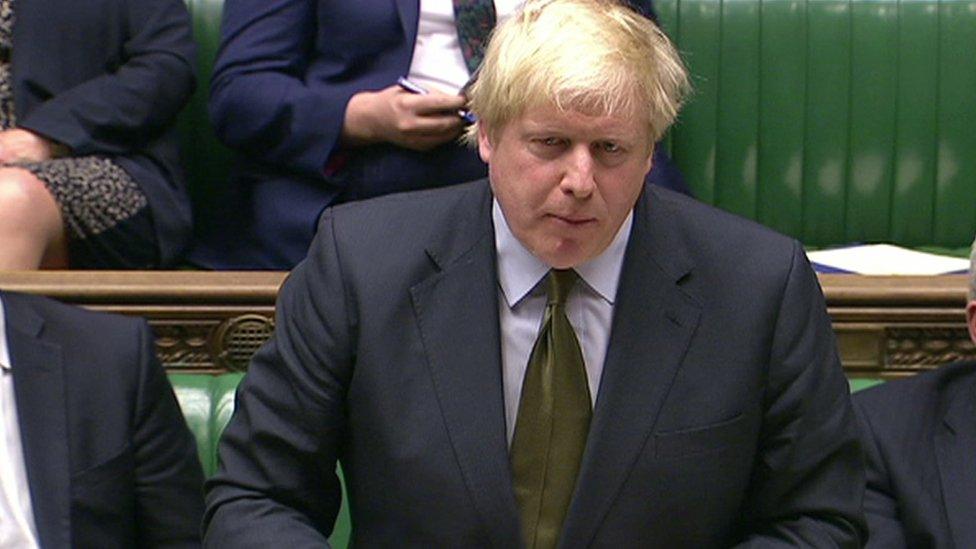
Boris Johnson said any victory in Aleppo would be a pyrrhic one for the regime
Mr Osborne has previously described the decision not to intervene in 2013 as one of the worst decisions ever taken by Parliament.
In 2015, the Commons did sanction air strikes against militants from the so-called Islamic State group in Syria.
But SNP MP Tommy Shepherd said they had palpably failed in their stated objective of "cutting off the head [of IS], providing air support for 70,000 ground forces and being part of a co-ordinated military action which would enhance a military solution".
'What are you doing?'
Speaking in Tuesday's debate, former Cabinet minister Andrew Mitchell said the UK had been among nations ten years ago to sign up to the "responsibility to protect" doctrine to prevent humanitarian catastrophes of the like seen in Srebrenica and Rwanda.
"This responsibility to protect was signed up to at great fanfare and embraced by all the international community, great and small," he said.
"Yet here we are today witnessing, complicit, in what is happening to tens of thousands of Syrians in Aleppo."
Labour MP Ben Bradshaw likened Mr Johnson to Conservative foreign secretaries of the early 1990s who he said had refused to intervene in the Balkans to combat Serbian aggression and the "genocide" that resulted, asking him "what are you doing?"
Mr Johnson rejected the comparison and said there was only so much the UK could do in Syria after ruling out military engagement in 2013.
"Ever since that vote, our ability to influence events in Syria or to protect civilians or compel the delivery of aid has been severely limited," he said.
"The dictator was allowed to do his worst, along with his allies Russia and Iran."
- Published13 December 2016
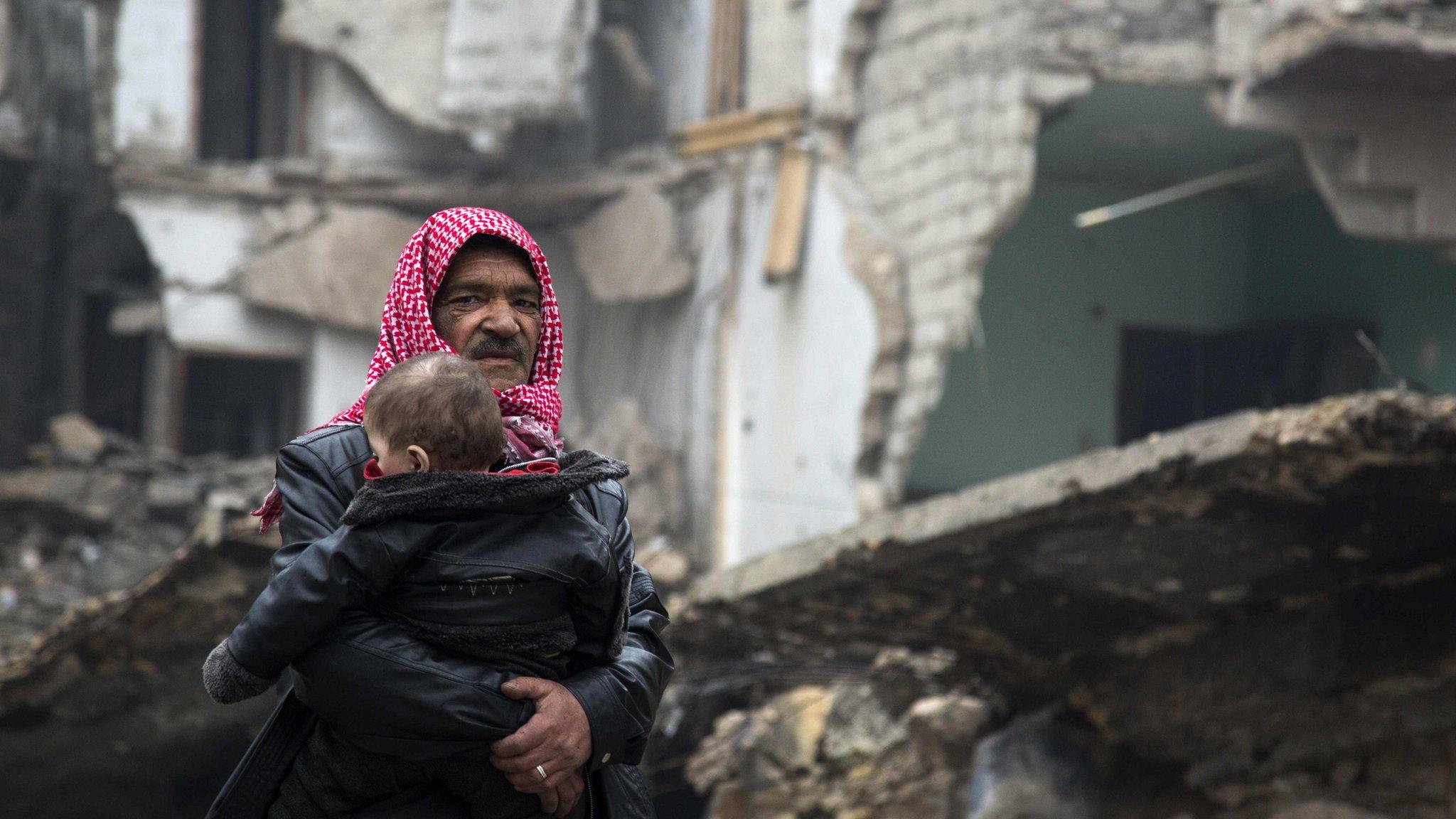
- Published13 December 2016
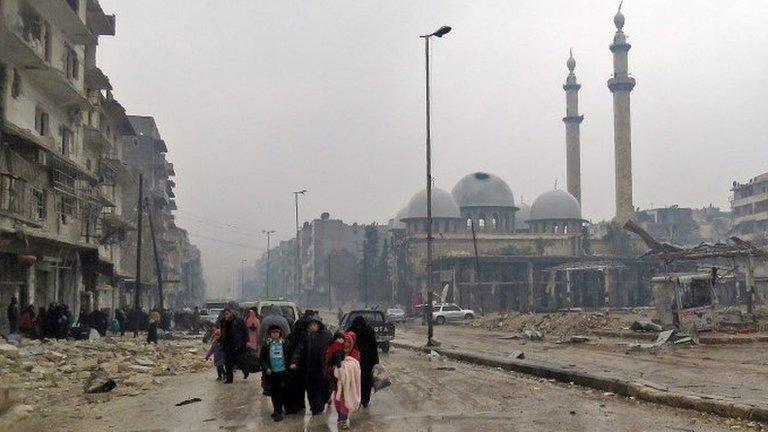
- Published23 December 2016
